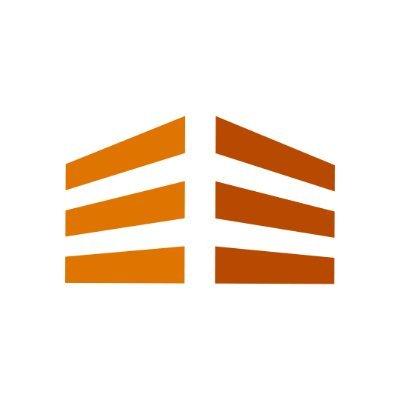Invest in commercial real estate projects
Invest in startups and venture funds
Investments
$25,000
Minimum investment amounts on CrowdStreet start at $25,000, with the exact threshold varying by individual project.
Investments
$10,000
The minimum investment amounts on the OurCrowd platform are as follows: $10,000 for individual company investments, $5,000 per company with a $25,000 balance transfer for a Portfolio Select Account, and $50,000 for investing in OurCrowd funds.
Moderate Risk
3/5
Investing via CrowdStreet entails typical real estate risks such as market fluctuations and property-specific issues, with no guarantee of returns and potential for capital loss.
High Risk
4/5
Investing via OurCrowd carries risks, including the potential loss of capital, market fluctuations, and limited liquidity. Early-stage companies may not succeed, leading to a total or partial loss.
Minimum Liquidity
1/5
CrowdStreet investments are generally illiquid, with capital committed for several years until a potential liquidity event, such as a property sale or refinancing, without a secondary market for early exit.
Minimum Liquidity
1/5
Investments on the OurCrowd platform are generally illiquid, as they involve early-stage, privately-held companies. Liquidity events, such as a sale or IPO, may take several years, and there is no guarantee or secondary market for trading these investments. Investors should be prepared for long-term commitments without immediate liquidity options.
Receive new reviews from Fintorial
High Return
17.9 %
CrowdStreet has a historical 17.9% Realized IRR and a typical 3.1-year hold period for investments, with returns varying based on equity shares, debt interest, or hybrid terms, and property sales.
Not Predictable Return
N/P
Returns on investments in OurCrowd's early-stage companies and venture funds are highly variable and unpredictable. While there is potential for high returns, given the speculative nature of startup investing, there's also a significant risk of loss.
Long-term Investment
3-10 years
CrowdStreet investments typically have a hold period of 3.1 years on average, with some ranging from 3-5 years and others up to 10 years, reflecting a long-term investment horizon.
Long-term Investment
5+ years
Investments through OurCrowd typically require a long-term commitment, often spanning several years to over a decade, due to the nature of startup and venture fund investing.
Who can invest
United States
Individuals must be accredited U.S. residents with valid identification to invest on CrowdStreet, while entities need U.S. accreditation, taxation, and verification, subject to CrowdStreet's approval.
Who can invest
International
OurCrowd investments are open to accredited investors as per local regulations, which vary by country. However, residents of Cuba, Iran, Lebanon, North Korea, Syria, and the Crimea Region of Ukraine are excluded from investing through the platform.
Moderate Volatility
3/5
Assets on CrowdStreet may experience volatility due to economic shifts, interest rate changes, and local market trends, affecting property values and investment returns.
Moderate Volatility
3/5
Assets on OurCrowd, being early-stage and privately-held companies, are highly volatile. Their valuations can fluctuate significantly due to market dynamics, competition, and operational risks.
Regulation and audits
SEC Regulated
CrowdStreet's offerings are regulated by the SEC and subject to regular audits for compliance, ensuring adherence to legal standards for securities and real estate investments. However, details on specific audits and regulations are not publicly disclosed.
Regulation and audits
SEC Regulated
OurCrowd complies with the regulations of each country it operates in, adhering to laws governing accredited investors and investment platforms. It is subject to regulatory oversight, ensuring transparency and investor protection. While not specified, financial audits and compliance checks are likely part of its operations to meet legal and financial standards, maintaining trust and reliability among investors.
Insurance
Yes
CrowdStreet's properties are typically insured against physical damage, but this does not cover market risks or guarantee full property value protection. Investors should note that insurance mitigates, but doesn't eliminate, all investment risks.
Insurance
No
OurCrowd does not offer insurance for investments on its platform. Investments in startups and venture funds are inherently risky, with no insurance protection against losses.
Payouts
Dividends
CrowdStreet investors may receive distributions, typically on a quarterly basis, based on the cash flow and profitability of their investments, but these are not guaranteed and depend on the specifics of each project.
Payouts
No Recurring Payouts
Investors on OurCrowd typically do not receive dividends from their investments in startups and venture funds, as these are growth-focused and aim for capital appreciation. Profits are usually reinvested to fuel further growth.
Withdrawals
Investors on CrowdStreet typically receive their money back after a liquidity event like a property sale, based on the timeline of the specific project's business plan. Real estate investments are illiquid, so funds cannot be withdrawn on demand.
Withdrawals
Investors on OurCrowd can get their money back during a liquidity event such as an IPO, acquisition, or sale of the company.
Extra Fees
Yes
CrowdStreet investments may include sponsor-determined fees such as acquisition, asset management, and property management fees, along with performance-based carried interest.
Extra Fees
Yes
OurCrowd's fee structure includes a 2% annual management fee for the first four years, capped to cover investment management costs. Additionally, there's a 4% upfront administration fee for direct SPV expenses, with the possibility of extra reimbursement set off from returns upon distribution. Carried interest entails a 20% fee on profits up to 5x the invested amount, escalating to 25% for proceeds exceeding 5x.
Taxes
Tax Form
CrowdStreet issues Form K-1 or other relevant tax documents to investors for annual tax reporting, with the advice to consult a tax advisor for proper tax treatment of investments.
Taxes
Annual Statement
OurCrowd offers investors an annual statement, which is essential for tax reporting. This statement details the year's financial activities, aiding in accurate tax filings.

